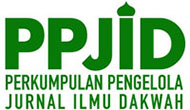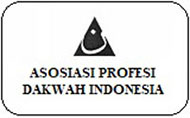STRATEGI KOMUNIKASI POLITIK DIGITAL PASCA-KEBENARAN
DOI:
https://doi.org/10.24014/jdr.v29i2.6317Kata Kunci:
Communication Strategy, Digital Political Communication, Political Communication, Post-TruthAbstrak
Post-truth in politics when it is warming up with various phenomena. The research objective revealed and explored in this study is how post-truth digital political communication strategies. The research method uses descriptive qualitative with a qualitative approach with critical paradigm and analysis. The post-truth political communication strategy that will be delivered is applicable and can be applied in the practice of political communication. The strategies are fake news: between facts and lies; near-lie: use the right words to form wrong impressions; deception with self delusion; spin: favorable interpretation of facts; euphemasia; repetition; personalization; and ignoring rationality, prioritizing emotions. The digital political communication strategy is more focused on how to use digital media for the benefit of political communication. The strategies are blogging; influencing public opinion; social media: building enggage and closeness; and mainstream media; focusing entertaining and attractive. These three strategies are based on digital media that are fully utilized in terms of digital political communication post-truth.
Referensi
Andrews, P. (2003). Is blogging journalism?. Nieman Reports, 57(3), 63.
Balmas, M. (2014). When fake news becomes real: Combined exposure to multiple news sources and political attitudes of inefficacy, alienation, and cynicism. Communication Research, 41(3), 430-454.
Begg, I., & Armour, V. (1991). Repetition and the ring of truth: Biasing comments. Canadian Journal of Behavioural Science/Revue canadienne des sciences du comportement, 23(2), 195.
Botsman, R. (2017). Who Can You Trust?: How Technology Brought Us Together – and Why It Could Drive Us Apart. London: Penguin UK.
Bennett, W. L., & Entman, R. M. (Eds.). (2000). Mediated politics: Communication in the future of democracy. Cambridge: Cambridge University Press.
Bennett, W. L. (2016). News: The politics of illusion. Illionios: University of Chicago Press.
Botsman, R. (2017). Who Can You Trust?: How Technology Brought Us Together – and Why It Could Drive Us Apart. London: Penguin UK.
Davis, E. (2017). Post-Truth: Why We Have Reached Peak Bullshit and What We Can Do About It. London: Little Brown.
D'Ancona, M. (2017). Post-Truth: The New War on Truth and How to Fight Back. New York: Ebury Press.
Eco, U. (1985). Innovation and repetition: Between modern and post-modern aesthetics. Daedalus, 161-184.
Esser, F., Reinemann, C., & Fan, D. (2001). Spin doctors in the United States, Great Britain, and Germany: Metacommunication about media manipulation. Harvard International Journal of Press/Politics, 6(1), 16-45.
Fish, W. (2016). “Post‐Truth” Politics and Illusory Democracy. Psychotherapy and Politics International, 14(3), 211-213.
Fiordo, R. (2012). Analyzing Blogs: A Hermeneutic Perspective. In Blogging in the Global Society: Cultural, Political and Geographical Aspects (pp. 231-248). IGI Global.
Fuller, S. (2018). Post-Truth: Knowledge As A Power Game. London: Anthem Press.
Gil de Zúñiga, H., Jung, N., & Valenzuela, S. (2012). Social media use for news and individuals' social capital, civic engagement and political participation. Journal of Computer-Mediated Communication, 17(3), 319-336.
Hamelink, C. J. (1994). The politics of world communication (Vol. 20). London: Sage.
Hopkin, J., & Rosamond, B. (2018). Post-truth politics, bullshit and bad ideas:‘Deficit Fetishism’in the UK. New political economy, 23(6), 641-655.
Jasanoff, S., & Simmet, H. R. (2017). No funeral bells: public reason in a ‘post-truth’age. Social studies of science, 47(5), 751-770.
Kalpokas, I. (2018). A Political Theory of Post-Truth. London: Palgrave Macmillan.
Keyes, R. (2004). The Post-Truth Era: Dishonesty and Deception in Contemporary Life. New York: St. Martin's Press.
Lazer, D. M., Baum, M. A., Benkler, Y., Berinsky, A. J., Greenhill, K. M., Menczer, F., & Schudson, M. (2018). The science of fake news. Science, 359 (6380), 1094-1096.
Lewandowsky, S., Ecker, U. K., & Cook, J. (2017). Beyond misinformation: Understanding and coping with the “post-truth” era. Journal of Applied Research in Memory and Cognition, 6(4), 353-369.
Levitin, D. J. (2017). Weaponized Lies: How to Think Critically in the Post-Truth Era. New York: Dutton.
Madison, E. & Jarnette, B.. (2018). Reimagining Journalism in a Post-Truth World: How Late-Night Comedians, Internet Trolls, and Savvy Reporters Are Transforming News. Santa Barbara: Praeger.
Mair, J. (2017). Post‐truth anthropology. Anthropology Today, 33(3), 3-4.
McNair, B. (2017). An introduction to political communication. New York: Routledge.
McIntyre, L. (2018). Post-truth. Massachusetts: MIT Press.
Misak, C. (2002). Truth, politics, morality: Pragmatism and deliberation. London: Routledge.
Moloney, K. (2001). The rise and fall of spin: Changes of fashion in the presentation of UK politics. Journal of Public Affairs: An International Journal, 1(2), 124-135.
Nardi, B. A., Schiano, D. J., & Gumbrecht, M. (2004). Blogging as social activity, or, would you let 900 million people read your diary?. In Proceedings of the 2004 ACM conference on Computer supported cooperative work (pp. 222-231). ACM.
Negrine, M. R. (1996). The Communication of Politics. New York: Sage Publication.
Neufeld, D. (2011). The socio-rhetorical force of ‘truth talk’and lies: The case of 1 John. HTS Teologiese Studies/Theological Studies, 67(1).
Oravec, J. A. (2003). Blending by blogging: Weblogs in blended learning initiatives. Journal of educational media, 28(2-3), 225-233.
Prado, C.G. (2018). “Introduction: The New Subjectivism.” dalam Prado, C.G. America's Post-Truth Phenomenon: When Feelings and Opinions Trump Facts and Evidence. Santa Barbara: ABC-CLIO, LLC.
Sismondo, S. (2017). Post-truth? Social Studies of Science. 47 (1),: 3-6
Suiter, J. (2016). Post-truth politics. Political Insight, 7(3), 25-27.
Silverman, C., & Singer-Vine, J. (2016). Most Americans who see fake news believe it, new survey says. BuzzFeed News.
Shao, C., Ciampaglia, G. L., Varol, O., Flammini, A., & Menczer, F. (2017). The spread of fake news by social bots. arXiv preprint arXiv:1707.07592, 96-104.
Shirky, C. (2011). The political power of social media: Technology, the public sphere, and political change. Foreign affairs, 28-41.
Stanley, Mandy. (2015). Qualitative Deskriptive: A very good place to start. Dalam Nayar, Shoba dan Stanley, Mandy. Qualitative Research Methodologies for Occupational. London: Routledge.
Swanson, D. L., & Mancini, P. (Eds.). (1996). Politics, media, and modern democracy: An international study of innovations in electoral campaigning and their consequences. New York: Greenwood Publishing Group.
Stieglitz, S., & Dang-Xuan, L. (2013). Social media and political communication: a social media analytics framework. Social Network Analysis and Mining, 3(4), 1277-1291.
Wilber, K. (2017). Trump and a Post-Truth World. Colorado: Shambhala Publications.
Williamson, B. (2017). Big Data in Education: The Digital Future of Learning, Policy and Practice. London: Sage
Weingart, P., Engels, A., & Pansegrau, P. (2000). Risks of communication: discourses on climate change in science, politics, and the mass media. Public understanding of science, 9(3), 261-284.









